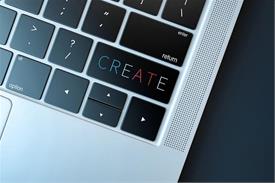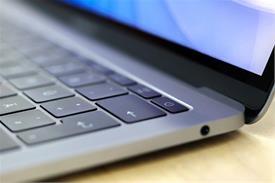Significance of Internet of Things (IoT) in Healthcare
The healthcare industry is currently in a miserably poor state.
Since healthcare services are becoming costlier than ever, different types of diseases are on the rise. We are already approaching an age in which healthcare would become out of the reach of poor and middle-class people. This simply means that more people will be prone to chronic diseases.
If you are thinking this might be the end of the world, know that you are mistaken! Why? Because the Internet of Things (IoT) has opened up a new world of opportunities in the healthcare industry. While technology can do nothing to completely eradicate all types of chronic diseases at once, it can certainly make healthcare accessible and affordable like never before. IoT is a mutual hope for both hospitals and patients suffering from different diseases. According to a research, the healthcare IoT security market is more likely to grow over $27,775.8 million by the year 2028.
When the Internet of Things is used in the health sector, it provides unparalleled benefits that could not only improve the efficiency and quality of treatments but also give patients more control over their lives and technology.
Real-Time Monitoring and Reporting
In order to save people’s lives in the events of emergency medical situations like diabetes, asthma, heart failure, connected devices can be helpful as they provide real-time monitoring. When real-time monitoring of a condition is done through a medical device connected to a smartphone, it helps in garnering medical and other important health data. Not only that, the patient can use the data connection of the smartphone to transfer the collected data to the doctor.
There is a good chance that now you are wondering how the data is stored. Well, for your information, it is stored in the cloud. The best part? You can share it with an authorized person. It could either be your physician/consultant or Health Insurance Company and they can take a look at the collected data anywhere and at any time of the day.
Research
In this age of technology, you can leverage IoT in the healthcare sector for research purposes as well. That is probably because IoT allows us to garner a massive amount of information about the illness of a patient that would definitely have taken ages if we tried collecting it manually. Hence, the collected data can be used for the statistical study that would certainly help in medical research.
Not only will IoT save time but it will also save your money that would go towards research. Needless to say, IoT plays a vital role in the field of medical research. It helps in the betterment of medical treatments and also enhances the quality of the healthcare services received by the patients.
Remote Medical Assistance
If there is any kind of emergency, patients can get in touch with a doctor with a smart mobile app even if they are many kilometers away. The doctors are capable of checking the patients and identifying their illness while they are commuting to work with the help of mobility solutions in healthcare.
On top of that, there are a variety of healthcare delivery chains that are projected to build machines that can distribute medicines depending on the patient’s prescription and illness-related data available through linked devices. It would not be wrong to say that IoT will significantly improve the quality of patient care in the hospital.
Tracking and Alerts
In life-threatening situations, it is quite difficult to keep track of on-time alerts. But, with the help of medical IoT devices connected to high-speed broadband, it is possible to gather important data and transfer that data to their physician for real-time tracking.
These alerts and reports provide authentic information about the severity of the condition of a patient regardless of their place, device or time. Besides that, it helps in making an informed decision and providing on-time treatment. In a nutshell, IoT allows tracking, real-time alerting, and monitoring which plays a vital role in improving the overall process of patient’s treatment.
Related Posts
To make your business successful in the modern age, you need to excel at digital marketing and have a strategy that can allow you to beat out the competition.
In the ever-changing digital marketing landscape, defined by transient attention spans akin to ephemeral specters, the strategic use of video has proven to be an alchemical concoction, flawlessly transmuting mere curiosity into a passionate embrace of customer interaction.
Core Web Vitals is a set of performance metrics developed by Google to measure the quality of a website's user experience.
It’s certain the people you look up to the most in your professional life qualify as thought leaders.
Task management is usually busy and tricky, whatever sphere it touches on.
Technology is an essential part of every company - no matter what business you're in. Here are some examples that prove this.

















Comments
comments powered by Disqus